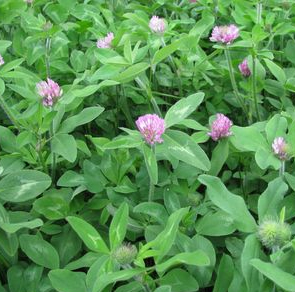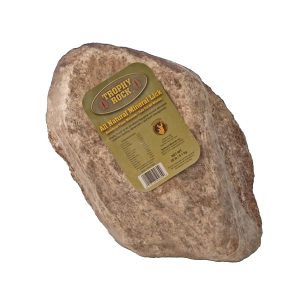Wildlife Food Plot
Providing the best food plot solutions for all kinds of wildlife.
Bulk Food Plot Seed
Farmer’s Co-op offers a wide variety of bulk food plot seeds available by the pound. Create your own custom blend of Clovers, Radishes, Canola, Turnips, Grasses, and much more!
To view a listing of wildlife seeds and their characteristics (plant height, best time to plant, soil type, seeding rates, etc.) click here.

Seed/Food Plot Mixes
No matter what wildlife species you’re trying to attract Farmers Co-Op can provide a mix that is designed specifically for your needs.
We also carry a variety of mixes from:
- Frigid Forage
- Northern Edge

Soil Testing
Why test the soil? Testing the soil gives you a clearer picture of what nutrients the food plot soil is lacking, therefore, you can fertilize more effectively and efficiently. A soil test consists of testing the soil pH, phosphorus, and potassium. pH determines whether or not plants are able to consume nutrients. If the soil pH is too high or too low, nutrients in the soil become “tied up,” and are unable to be absorbed by the plants. Not only does your fertilizing efforts go to waste but your plants literally starve to death.
How to take a soil sample:
- Collect soil samples to the appropriate depth
- 6-8 inches deep before establishing new food plot
- 4 inches deep from existing food plots or no-till areas
- Collect 15-20 cores from each unique area, place the cores in a plastic bucket, mix thoroughly, and use this mixture to fill the soil sample bag. Bring soil sample bag into the Hudsonville Store for testing. A minimal fee will be charged.
Fertilizer
Fertilizers available and most recommended for food plot use are 12-12-12, 19-19-19, 0-0-62, 46-0-0, pelletized lime and sulfur. Rates of application will vary with product. Following recommendations resulting from a soil test will give you optimal results.
Common Error made in establishing food plots:
1. The phrase more is better is not necessarily true. Exceeding the seeding, lime, or fertilizer recommendation is a waste of both time and money.
2. Not fertilizing and depriving your plants a good start. Most crops need applications of fertilizer to help them grow and achieve maximum productivity. Don’t assume your soil doesn’t need fertilizer. Soil test — don’t guess.
3. Using old seed. Seed that is old may not have been properly stored. It’s best to use new, high quality seed in your food plot.
4. Planting agricultural seeds in shaded areas. Plants grown for agricultural purposes require sunlight for energy and growth. Avoid placing these seeds in shaded areas such as woods.
5. Not planting enough acres. Food plots that are too small are ineffective. Food plots should be at least 1,000 sq. ft., but 1/4 to 1/2 acre in size for every 20 acres is recommended.
6. Planting too late for maturity. All crops require a certain number of days to grow and mature. If the plants are planted too late, they will not mature and will fail to provide food to wildlife.
7. Planting varieties for other climates. Because of climate differences, many seed varieties suited for areas other than Michigan will not sustain well.
Minerals - Feed - Attractants
The Farmers Co-Op Hudsonville Store carries a large selection of different minerals, attractants and feed for wildlife. Some of these products consist of:
- Lucky Buck
- Deer Blocks – Kalmbach Deer Block and Purina
QuickDraw Block - Trophy Rocks 12# & 20#
- Antler King
- Trace Mineral Blocks and TM free flow salt
- White Salt Blocks and White free flow salt

Other Regularly stocked wildlife feeds include:
- Shelled Corn
- Cracked Corn
- Roasted Soybeans
- Molasses
- Purina® AntlerMax® Deer Feed

